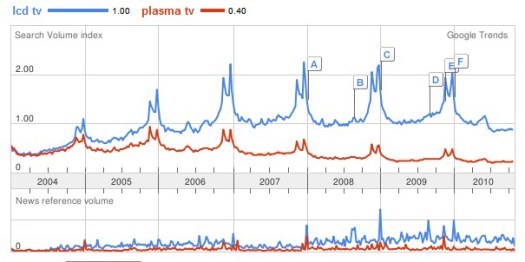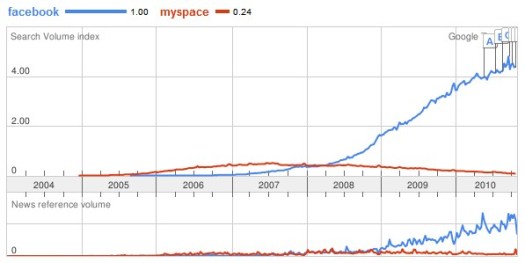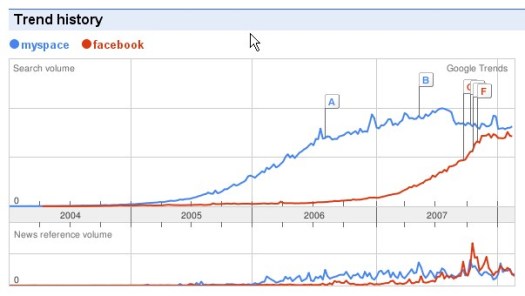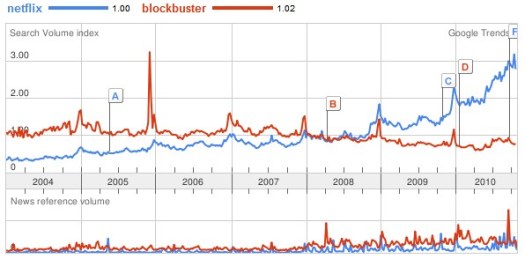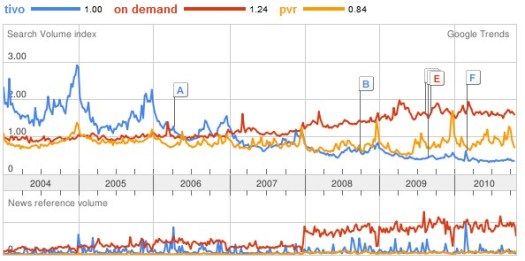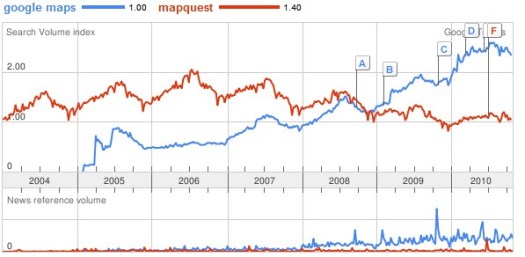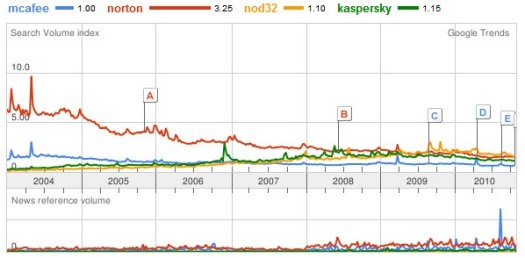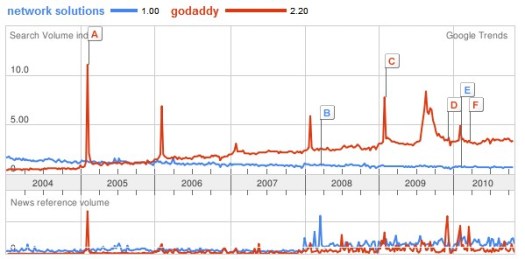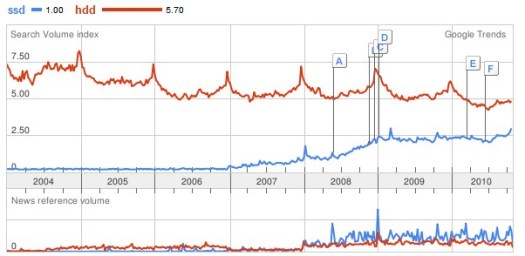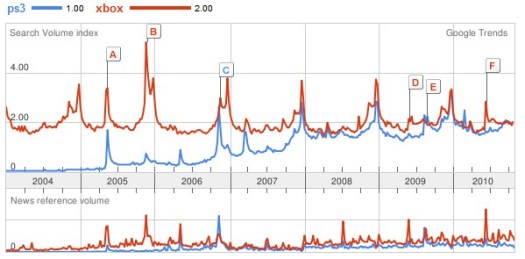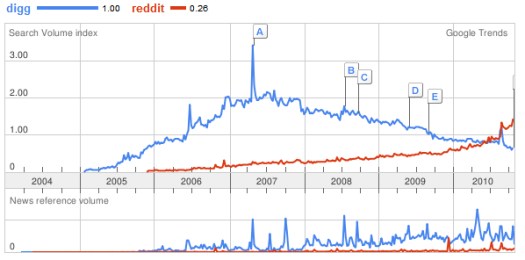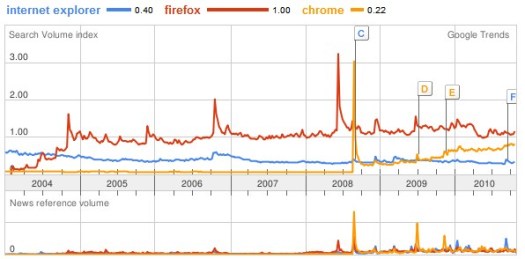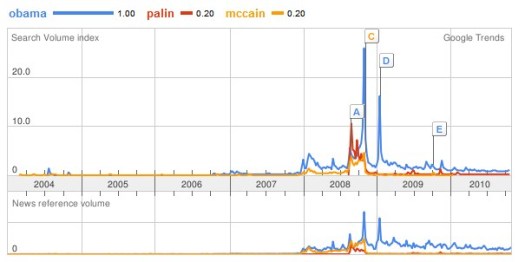Mortgage Affordability – 2005 Revisited

About 17 years ago (back in 2005) when mortgage interest rates were around 6% I posted an article called How interest rates can drastically affect real estate prices. At the time I was already amazed by the low interest rates and was concerned they would go up and how it would affect people. It’s finally started to hitting us, and what’s even more challenging is that the percentage increases per 1% is higher than it was in 2005 because interests are so much lower today than back then. In other words going from 6% to 7% is an increase in monthly payment of about 10% whereas going from 3% to 4% is an increase of between 13% and 14%. In fact at the time I hadn’t even calculated below 4% because I never thought it would go that low because that was below the historical inflation rate. We definitely live in different times.
In the last few months we’ve just gone from 3% to about 6%. I’m going to use 30 year fixed interest rate because it’s a lot easier as I can just use the FRED data. In any case that’s a 3% increase in a matter of months. That’s also double the interest rate! Looking at the chart from my previous article about how interest rates affect real estate prices, someone who could afford a $1000/mth mortgage back in the summer of this year could afford up to about $235k mortgage whereas today that translates into a $167k mortgage. That’s a huge drop of about almost 29% affordability. If you look at the median house price across the US of $429k (as of early 2022) then that means a drop of $124k, or a drop from $429k to about $305k. That’s very significant.
That was at the time while the market was hot and people were buying. What happens today when people are struggling financially and buying is much much lower? Where you just can’t flip your house or refinance on a higher valuation? If you look on Reddit there are a lot of stories of people on variable interest rates seeing large increases in their monthly mortgage payments. We’re talking multiple hundreds a month to over a thousand dollars more per month. That hurts.
Let’s do the reverse and let’s calculate the difference in monthly payments on a mortgage that was previously paying $1000/mth at 3% interest. We’re still going to use the 30 year fixed mortgage but the math still applies to variable rate mortgages as well as people who need to refinance. That being said a $1000/mth mortgage at 3% affords you a mortgage amount of about $235k. If we take that same $235k and apply a 6% interest rate then the payments balloon to a little over $1400/mth a month for a 40% increase in your monthly payments.
If we extrapolate that to the median house price (assuming 0% down to make the math easier) then that means a mortgage of $429k with a monthly payment of a little over $1800/mth. Today that has now exploded to $2572/mth for an increase of $772/mth. That’s very significant for the vast majority of people. That’s an increase of almost 43%! It’s not just the percentage but the absolute amount of $772/mth is by itself very significant considering the annual median household in the United States is $70,784 (as of 2021). That’s an increase of over 10% of their salary going to their mortgage. And that’s before taxes! If you do the math after taxes it’s probably 15-20% and higher. Ignoring that the median income generally cannot afford the median house, but if it could then the math would be even more challenging.
And we haven’t even started to touch on the topic of those mortgages which keep the monthly payments the same but add on the difference in payments to the mortgage amount. Meaning that if your monthly payment was suppose to go from $1000/mth to say $1400/mth than that $400/mth difference just gets tacked onto the principal amount. Meaning each month your principal is very likely increasing. For a median house that’s an additional $772/mth increase to the mortgage. It won’t be exactly that because of the details but it’s quite significant nonetheless. In other words they would be getting more and more into debt. What happens when they refinance when the mortgage term is up?
And that’s the key. The fallout will take some time to happen. There’s a lot of complexity and variables but there will be a correction, the question is more of when exactly. The first question is what is the average term of mortgages these days. In other words when are most people due to refinance? Until it comes time to refinance a decent amount of people will be able to muddle through. Not everyone but a lot. But once refinancing hits that’s where it will be very challenging for a lot of people. Especially if interest rates continue to climb as is expected to fight inflation. Yes we’ve pushed back inflation a little bit but I don’t believe that battle is anywhere near over. The other question is how many are on variable rates that can continue to holdout.
In addition as interest rates climb prices of houses have to fall. Prices were so high because affordability was so high because of the historically low interest rates. Aka free money. But in turn when interests go back up that also means house prices will have to drop which in turn means for a lot of people their equity will be decreasing. Instead of refinancing to take out equity of their property they will have to put in balloon payments if they end up being underwater. Can they afford that difference?
The other question is will inflation continue to be higher than interest rates because if it does then that could help out a lot people. So for example if inflation were to be at 10% (an even number) then assuming you had a 10% raise and the interest rate on your mortgage remained at the current 6% then you would actually be ahead. That mortgage would be worth less in 2022 dollars. As a more extreme analogy imagine a $30k mortgage for a house in 1980. $30k today is a much smaller amount then it was in 1980 and would be much more manageable then the median $429k. Of course it won’t be as extreme but when inflation is higher then interest rates it can be challenging. Even more so if salaries rise with inflation, which unfortunately doesn’t seem to be the case right now. Nonetheless inflation is having an impact on mortgage affordability.
Seeing as the goal of the Fed is to keep inflation rates in check I believe they will have no choice but to continue raising interest rates until inflation starts to go down, at least in the short term. At the very least keeping it higher then we’ve been used to for many years until inflation starts to get more reasonable. And that’s relative, even today’s “high” interest rates should be considered historically low interest rates. Pre-2000 interest rates were pretty much always above the current rate of 6%. The real question is how will this all play out in terms of interest rates and inflation as they both have very big impacts on loans and mortgages. The speed and scale at which they are moving doesn’t give the markets the chance to easily absorb the changes. This is leading to a lot of chaos and distress right now.
On a positive note there will be a lot of buying opportunities in the near future for those who position themselves well. Even with all the doom and gloom, or in fact because of the doom and gloom, there will be some great opportunities. As the saying goes, fortunes are made and lost in times of chaos, and we are clearly heading in such a time. Not that 2020-2022 were easy times, I just suspect that 2023 will be more interesting in terms of the impacts interest rates and inflation will have on the markets (financial and real estate). We’re about to see the true costs of all the recent money printing and the long term low interest rates. The can was kicked down the road but we’re now getting near the end of the road and can’t really keep kicking it much further without risking high inflation which is a much bigger and worse problem. Some even speculate a once in a generation market crash, a super cycle if you will. Whatever happens the thing to remember is that when there is chaos there is always good opportunities for both failures and much much more importantly successes. May you be one of the successful stories of 2023!
Permalink to this article Discussions (0)
Facebook IS Overpriced
We’re definitely in a tech bubble again. Tech IPO’s are over priced once again. Just last year I wrote the post Groupon – Back to Crazy Company Valuations, in which I explained how and why Groupon was insanely overpriced. What’s happened since that post? They went public, quickly climbed to the $25 mark and then not even a year later they’re barely trading at $12! That’s a 50% price decrease!
Not only that but their numbers still make no sense. Ignoring their accounting oddities and controversies, the P/E alone would be staggering (assuming they had a profit). For the same market cap you could buy quite a few amazing companies with a lot less risk and the same revenue growth.
But today’s article is about Facebook and not Groupon, so let’s look at their story. Why do I believe they are incredibly overpriced? Firstly, the IPO price was insane. $38? Seriously? That gives them a market cap of about $100 billion dollars! In of itself that’s not a big deal, but when you take into account their revenues and then it’s insane!
The P/E for Facebook is over 100! The last time we saw P/E’s like that was in the dot com boom from about a decade ago.
But ignoring that fact, let’s do a comparative analysis of Amazon to Facebook, since they have about the same market cap, are both in IT, and so on. Facebook has $3.7 billion in revenues. Amazon has $51 billion in revenues. Yes that’s more than 10x the revenues. Both are experiencing similar growth rates. Amazon has about 5x the total profits of Facebook. Both are selling for the same price!
So why would I buy a company that’s at least 10x smaller and making 5x less profits for the same price? Or put another way, if you could by a local little store for $100,000 or one for $1,000,000 that had the same revenues, same growth, etc., which would you buy?
Ignoring that, which means ignoring yet another red flag (which in of itself should be yet another red flag – talk about meta), how stable are Facebook’s revenues? We know that Amazon owns ecommerce. But above that, Amazon is also a leader in cloud services. Many many many many companies (some very large companies) rely on them for managing their IT infrastructures. This isn’t small, it’s a huge deal in the IT world. Personally I believe this is the future of Amazon and where they will grow extremely large and powerful.
Ok but that’s just one competitor, and maybe Amazon is wrongly priced, maybe it’s even under priced itself (or maybe overpriced too, it could be that Facebook is that overpriced – I’m not debating if Amazon is a good deal today, just that compared to Facebook, Amazon is a much better deal). But what about some other companies. Did you know that McDonald’s is cheaper than Facebook! Yes, it’s market cap is $90B. That’s 10% cheaper. It’s not growing anywhere the same rate, but still. Anyone heard of Visa? Yeah, that’s cheaper than Facebook! And it’s a company that continues to grow. And no one has any doubts that it’s profitable with their interest rates and all kinds of fees, etc. For the tech oriented there’s also Intel. Yes it’s a bit more expensive than Facebook, but it’s generating 15x the revenues and almost 10x the profits. And it’s revenues are growing (not at the same rate, but still quite nicely nonetheless).
So basically when you buy Facebook, you’re buying the stock with all of the growth of these companies already built into the stock price. In other words, you’re buying it assuming it will grow to the same size as these companies. It has to grow BIGGER than these companies for you to make any profit because the price already includes these gains! That’s a huge claim!
Of course we all know the stock prices are irrational and the price could go higher based on that irrationality, but trying predict irrationality is a fool’s errand and if you don’t jump out at just the right time, you’ll get severely burned. Not something I want to try my luck at!
I believe that the biggest reason Facebook is getting such a high valuation is because of it’s brand awareness. Almost everyone is familiar with Facebook. There’s even been a movie about it. Many many people use it. The problem is that most people don’t stop to think where and how Facebook makes it’s revenues. In case you don’t know, most of it’s revenues come from ads.
Yes it’s similar to Google and their ads (Adwords), except that Google has a major advantage over Facebook. People on Google are actively searching for something when they go to Google. They aren’t just perusing and maybe they’ll click on an ad, they’re actively searching for something, including the ads! With Facebook, the ads are a distraction. When you use Facebook, it’s to socialize. It’s not to actively look for products. You’re in a completely different mindset. You don’t go to Facebook to find something, you go to socialize. With Google you go to find things.
And since Google and Facebook share such a similar business model, it’s only fair to compare them. Google is priced at twice the price of Facebook ($200 billion market cap). Google’s revenues are growing quite well, similar to Facebook’s. But Google is generating more than 10x the revenues and about 20x the profits!! Not bad for twice the price. And you don’t have to hope it will make it, it’s already there!
So let’s do a comparable analogy of Google and Facebook. If I was to give you two options:
– Buy stock A for $1 that’s generating $0.61 revenues and $0.20 profit
– Buy stock B for $1 that’s generating $0.04 revenues and $0.01 profit
Which would you want to buy? It’s pretty clear and obvious isn’t it? Now let’s say I added another:
– Buy stock A for $1 that’s generating $0.61 revenues and $0.20 profit
– Buy stock B for $1 that’s generating $0.04 revenues and $0.01 profit
– Buy stock C for $1 that’s generating $0.52 revenues and $0.05 profit
In case you’re wondering, stock C is Amazon. In either case, as you can quickly see, Facebook is incredibly overpriced. At this time, Google would appear to be the best deal (best profits – and a higher profit margins!). Of course this quick analysis is missing a lot of factors such as growth, marketspace, etc. But it’s good enough to see the scale of the valuations of the different companies. Kinda makes you think doesn’t it?
So how is Facebook fairing since the IPO? Well firstly did you know that Morgan Stanley spent billions to support the initial IPO price point?. Yes the market wouldn’t bare the initial price so it had to be propped up.
And since then, the price has continued to decline. Right now as I write this the price is hovering around $31/share. That’s approximately a 18% price decline in just a few days! And the biggest tell of the stocks success will be when it releases it’s first real financial report as a public company. If it doesn’t meet the incredibly high expectations, well let’s just say the market has a history of not being too kind to such stocks. It will be interesting to see how Facebook does on its first filing after the IPO.
But do remember that for Google, as important as the big accounts are, Google Adwords has a lot of small accounts too. My company LandlordMax spends quite a bit on Google Adwords advertising each month. And we will continue to do as long as the ROI is positive. However many small businesses aren’t experiencing the same positive results on Facebook. Here’s just a few examples:
- Advertising your software on Facebook (=Fail)
- Pizza Delicious Bought an Ad on Facebook. How’d It Do?
- I put my family business on Facebook. Here’s what happened
- GM Says Facebook Ads Don’t Work, Pulls $10 Million Account
As you will quickly notice, the results weren’t just not positive, they were atrociously negative. As in extremely bad! To the point that it’s in not even worth trying to adjust and fix.We’re not just talking small companies with naive marketers, but we’re also talking large companies with large budgets. That’s why I can’t see the same expenditure levels on marketing for Facebook ad campaigns as are happening today with Google Adwords. Yet this growth is already assumed and calculated into the current stock price.
Again some people have shown success, but I have read too many similar articles like those above to dismiss them as just bad luck. Sure Google has similar unsuccessful stories, but they are rare in comparison.
Being an entrepreneur, I constantly talk to a lot of other fellow entrepreneurs, and I have yet to personally meet someone who has had a successful Facebook ad campaign. Again, some people obviously have had success, and you can find articles about it. I just don’t personally know any. Whereas with Google Adwords I know of many people actively using it with positive ROI, including myself. So as anecdotal as this observation is, it’s still an important observation for me. Firsthand experience down in the trenches is always very valuable and should never be dismissed.
But if you buy Facebook stock, then the price includes this growth in today’s price. It has to acquire all these customers and more to justify it’s current price! Any increase in market cap (stock price) is then based on further expected growth and not actual real growth. Sure signs of a boom with a very high potential for a large price drop.
And in my personal predication Facebook will NOT meet it’s expectations. Facebook is a cool system, and it’s great for social networking, but in terms of a advertising value for a company I believe it has limited value. Unlike Google where people are actively searching, with Facebook the ads are more like banner ads. And we all know that banner ads have atrocious click through rates, just like Facebook ads are appearing to have. Yes you can significantly improve your targeting, but does that really matter that much? It doesn’t appear to be making that much of a difference in terms of ROI for Facebook ad campaigns from the results we’re seeing. And I can’t see it improving. I also can’t see Facebook trying to compete in search. So I personally don’t understand how they will ever get the same ROI on ads as Google.
Now I’m not saying Facebook isn’t a good business, it definitely is a good business. And it can definitely earn revenues and is profitable. All I’m saying is that the current price of Facebook is not inline with the value of its business. It’s too overpriced. If the price dropped significantly I would probably start to get tempted. But right now, it’s just insanely priced for what you get. Which means the price of the stock only has one direction to go, DOWN! Maybe not today, but give it a 1-3 years and it should better line up with it’s real value.
In either case, we’ll know soon enough. I’ll definitely have to post a follow-up in a year or two to see what happened between my initial predication today and then.
Update: Looks like the Facebook IPO is about to get quite messy!! It appears that the earnings estimates for Facebook were downgraded for the IPO but not everyone was notified. Firstly it’s very odd to do it at the very last minute of an IPO, but what’s even more worrisome is that some bigger investors were notified which is considered insider information. This could get really ugly real quick!!
Update 2: It’s quickly escalating. It now looks like Morgan Stanley, Goldman Sachs, and JP Morgan, along with Facebook itself, are being sued by investors claiming to be misled in the purchase of the Facebook IPO. If you thought Martha being sued for insider information and trading was a big story, this is going to explode in comparison. One of the largest IPO in history, an over-hyped IPO, investors losing 20% in two days, large dollar values of insider trades, a high profile company, it all has the making of one of the biggest stories of the year. I’ll even predict that a movie, even if it’s just made a made for tv movie, along with at least 2-3 books, will be released within a year.
Permalink to this article Discussions (2)
How Accurate Were My 2009 Google Trend Predictions?
For those of you who aren’t familiar with Google Trends, it is a free service by Google that lets you determine the trend of different keyword searches over time, and ultimately compare them against together. This is extremely powerful in that it can really help you predict the future, in many cases it’s so accurate that it can be scary! So today I’m going to take the time and revisit my predictions from June 8, 2009 (about a year and a half ago) when I wrote Can Google Trends Predict the Winner? In case you’re wondering, the answer is yes it can. It’s that accurate!
So let’s look at each prediction one by one to see what’s happened since:
LCD TV versus Plasma TV (obvious prediction)
In 2009 I predicted that plasma TV’s were on their way out. Clearly this trend is continuing today.
MySpace versus Facebook (scary good prediction)
This is one of my favorite predictions, partially because I predicted this as far back as 2007 when Facebook and MySpace were neck in neck, when there was no clear winner yet. When I initially wrote my ebook How to Generate Traffic For Your Website I used the example with data up to early 2008 (first edit). When I re-edited it in 2009, I kept the same graph (shown below) because it was even less clear who the winner was going to be. By 2009 it was starting to become pretty obvious. Of course today there’s absolutely no doubt.
Netflix versus BlockBuster (scary good prediction)
By mid-2009 you could see a downward trend for BlockBuster and an upward trend for Netflix. Based on that, I predicted that Netflix would win over BlockBuster. I used BlockBuster because it was the biggest movie rental company by a large margin.
It turns out that prediction was all too accurate. In September of this year (2010) BlockBuster filed for Chapter 11 Bankruptcy protection. And Netflix is showing no signs of slowing down, they’re actually showing some pretty solid growth as shown below:
In case you’re wondering, how could you have leveraged this information and made money from it. Well the answer is pretty easy. For one you could have avoided losing (er I mean investing) any money in BlockBuster stocks and bought Netflix stocks instead.
For example, if you invested $1000 in Netflix in June 2009, you would’ve paid about $40/share, acquiring 25 shares. Today those same 25 shares would be worth $168.15 each, giving you a total of $4,203.75. A handsome profit of $3,203.75!! You would have made 400% on your money!
If you had invested that $1000 in BlockBuster, at the going price of about $0.65 a share in June 2009, you would now have a total share value of $107.69. You would have lost of the tidy sum of $892.31! In other words you would’ve almost all of your money!
Of course this is a drastic example, for sure not all predictions are that drastic. But it sure does make me think, especially when almost all of my predictions using Google Trends turned out true!
Tivo versus PVR versus On-Demand (ok prediction)
Although harder to see because the changes aren’t as drastic, my predictions from a year and a half ago appear to have also come true here as well.
Tivo continues to be on the decline. In terms of investments, it doesn’t quite work out. It just happens that Tivo had an upswing in stock price in June 2009, going from $7 or $8 a share for a long time before to a high of about $11.50 for the month of June 2009, then falling to a consistent average of $10.50 for many months. After that it did go as high as $18.49 for a short burst, then back below the $8 range until just recently having jumped up back up to exactly $11.50 today! So had you invested in June 2009, you would have made or loss nothing, you’d be exactly where you started. Today, I would still advice against investing in Tivo stocks, unless you want to short the company that is.
For On-Demand, it appears to have stalled somewhat. It did grow from mid-2009, but in mid-2010 it seems to be stalling. If I were a cable network executive, I’d either be pulling back or pushing hard. Leaving things as they are probably means that On-Demand will slowly fade away. Right now it can go either way, but my suspicion is that we’ve seen the peak and it will start to decline because cable companies are notorious for their slow speed of execution.
For PVR, not much has changed. It still too static to predict. If anything there seems to be a small upwards trend, but it is very small. Nonetheless I’m still very much on the fence for PVR. It’s still too early to predict which way it will go, only that it will still be here for some time.
Google Maps versus Mapquest (good solid prediction)
In mid-2009 Google Maps had just passed Mapquest. It was also pretty apparent that Google Maps was growing whereas Mapquest was slowing down. Well today it’s clear that Google Maps has beat Mapquest. The only real question now is if Google Maps has peaked or if it’s just hitting a temporary peak.
Norton versus McAfee versus Nod32 versus Kaspersky (half accurate prediction)
I predicted that Norton and Mcafee would continue to lose marketshare and Nod32 and Kaspersky would continue to grow. Unfortunately the trend graph is very hard to read because Norton had such a strong lead in the past. However if you take out Norton from the graph, it’s a lot easier to see the differences.
That being said, it’s still evident that Norton and Mcafee are declining (hence the mostly accurate prediction). However what’s unfortunate is that Nod32 and Kaspersky seem to have peaked. I then looked at “antivirus” and it seems to also be on a decline as a whole, which is intriguing. Therefore I don’t know if this is related, but it would be interested to follow-up and see what’s going on. Is it the industry in general that’s on a decline? Is it the economy? Or are there other upcoming antivirus companies replacing them? I don’t know and I just don’t have the time to research it myself, but I would definitely be interested to know.
Network Solutions versus GoDaddy (good and easy prediction)
As predicted, the trend continues. Network Solutions continues to decline and GoDaddy continues to grow. I wish I could compare investments made in both of these companies but they aren’t publicly listed. In any case, I predict Network Solutions will continue to decline with time and GoDaddy climb.
SSD versus HDD (good and on track prediction)
As some of you know, I’m quite biased when it comes to SSD versus HDD. I’ve been an SSD convert since early 2008. I currently have an Intel X25-M Gen2 SSD drive in my laptop. I will never go back to HDD’s. The difference is just staggering! Once you go SSD you can never go back to HDD!
Anyways, based on the Google Trends in mid-2009 I predicted SSD’s would eventually overtake HDD’s and eventually become the standard. Not just because I’ve seen the difference firsthand, but also because of the Google Trends charts. Well it appears that this trend is definitely continuing. I predict it’s only a matter of time before we see SSD’s overtake HDD’s. And once that happens, it will stay that way forever. The only thing holding back SSD’s right now is pricing, there’s still too much of a premium that most non-techies are willing to absorb. But as the prices go down, the trend will only increase in speed.
New Predictions
PS3 versus XBox
Based on the above Google Trends, I believe the PS3 is going to become the dominant gaming console in the next 1-3 years, at least until a new “disruptor” console comes along (generally every 5 or so years). And in case you’re wondering, I tried a few variations of the keywords XBox, Xbox 360, Playstation 3, and so on, and basically kept the main two keywords used for searches on these two consoles.
Digg versus Reddit
Looks like Digg has lost it’s way and is going to just keep on losing. Whereas on the other end of the spectrum you have Reddit which seems to be growing even faster since Digg’s recent issues.
Internet Explorer versus Firefox versus Chrome
We’ve all heard news about IE (Internet Explorer) losing dramatic marketshare to Firefox. But how many of you have heard about the latest web browser from Google called Chrome? It’s first official public release was Dec 2008, less than 2 years ago. Although new, it seems to be growing by leaps and bounds while the other two browsers are either stagnant or losing marketshare.
So how do searches on Google actually transfer to marketshare? Quite well it turns out according to Engadget and Ars Technica. Their data is pretty consistent with what we find on Google Trends. IE is consistently losing marketshare, which is why Microsoft is pushing really hard to get IE9 out. This is their attempt at getting back some of their old glorry from the IE versus Netscape win. Firefox seems to be pretty much stable right now, neither losing or winning any real marketshare. And then there’s Google Chrome. According to StatsCounter, Chrome usage has tripled in the last year! Yes, that’s right, tripled!
So what does this all mean? Well unless there’s a significant improvement in either Firefox or IE, then my prediction is that Google Chrome will become a major player in the browser wars. I wouldn’t be surprised if it takes first or second place sometime in either 2011 or 2012.
Conclusion
Although I’ve just compared a few items, the potential is endless! And from what I’ve seen, the accuracy can be surprisingly good. So good in fact that Google has created Google Flu Trends.
Basically what they’ve learned is that the trends for searches about the flu mimic the actual real volumes of flu activity. The biggest advantage with Google Flu Trends is that it’s possible to get the data quicker than the CDC. Yes, that’s correct! The CDC takes about 1-2 weeks to compile the latest data whereas Google can publish it in real time! The idea is that if there is a major spike in flu searches, Google can warn the CDC 1-2 weeks before they even know about a pandemic!
But what about other diseases? I quickly searched for stomach flues and gastros and the data seems to indicate yes. That being said, I will admit I didn’t search very hard to confirm this, but I do suspect it would be very accurate. Scarily accurate!
My next big leap, which I haven’t taken or tested yet, is can Google Trends be used to predict elections? I highly suspect the answer is a resounding yes. I just took a snapshot of the Google Trends for the bigger candidates of the 2008 US presidential race and it clearly shows Obama leading his opponents in searches. Of course this is in retrospect, so it’s very easy to say after the fact. But what about the next election?
I can only imagine what else is possible. If you have any ideas, and especially if you find interesting trends and comparisons, please let me know. I look forward to seeing what you find!!
(good prediction)
Permalink to this article Discussions (2)
The Sunk Cost Effect

There are many many many many many books that teach you how to make money, but almost none that show you how to avoid losing your money. I personally had never really thought about this, at least not until I read the book What I Learned Losing A Million Dollars (an amazing book that I strongly recommend). Like everyone else, I was more concerned about making money rather than about how not to lose it. But as Jim explains it, there are many ways to successful make money but few to lose it all. You can invest in opposite strategies and still make money! The key to long term wealth is to understand the psychological forces that induce us to lose our money, even through our best efforts.
The book What I Learned Losing A Million Dollars starts off with Jim’s personal story of how he quickly climbed up the success ladder and then in a matter of a few months lost his entire wealth. What’s most interesting about the book is that what happened to him could happen to anyone. But the scariest part is how fast it can happen. It’s not that he did stupid things or spent wildly, it’s that he got caught up in a psychological trap. One that we all fall prey to from time to time, just on smaller scales.
Once it was all over for Jim, he went on a quest to find what the best investors did. What he found is that there was no consistency, they were all over the place. Many of them contradicted themselves and still succeeded. This lead him to question how this was possible, after all in most cases when two people use the opposite strategy one person has to come out ahead at the expense of the other. That’s how the markets work.
What he found out was that this wasn’t necessarily true. What happens is that successful investors know when to stop, when to drop an investment. Investors using opposite strategies aren’t always in the market, they’re in the markets at different times. They know when to wait on the sidelines until the markets favor their strategy. They don’t fall prey to as many psychological traps as ordinary people do. That is the only common thread he was able to find for highly successful investors!
And today we’re going to discuss one of those very common traps. It’s the effect of looking at your previous costs in determining whether or not to go forward today, otherwise known as the Sunk Cost Effect.
To give you a common example unrelated to investing, just to show how prevalent and strong this effect is, let’s take the example of car ownership. Let’s assume you own a car that’s a few years old (still pretty new) and you’ve just spent $2000 in repairs on it a couple of months ago. Suddenly this week it starts misbehaving, you bring it to the garage, and find out you need to spend another $1000, $2000, or even say $4000 on it. What do you do?
The best answer is to look at the value of the car TODAY and determine if it’s worth it TODAY. However, and this is where we almost all fall prey to the sunk cost effect, is that we also look at the fact that we just spent $2000 a couple of months ago. We’ve already spent that much money on it, so we might as well go forward with the new repairs. We don’t want to lose that $2000 in repairs from a couple of months ago. We may even rationalize that what we fixed a couple of months ago won’t break down again for some time so the car is better for it. And that’s a big problem!
What happens now if in another month we get another bill for another $2000? Well you have to get the repairs, after all you just spent $3000-$5000 in the last few months. And then what happens in another couple of months if it repeats. Oh my god!! We just spent $5000-$9000, there’s no way we want to lose all that money and/or effort. And so the vicious cycle has started and we start to lose more and more money just because we didn’t want to lose that initial $2000!! Trying to avoid losing that initial $2000 repair bill has now cost us around $10,000, and it’s only going to get worse! If the car is a lemon, how long will it take for us to give up? If you think it was hard at $2000, imagine now at $10,000! The more you lose, the harder it gets to pull out!
And it’s not just with cars, it can happen with just about anything. It can happen with your job. You may have already committed 3, 5, 10, 20 years to this job. You may hate it, it may be paid below market rates, and so on. But since you’ve already committed so much to it, you’re probably less and less likely to quit with time. This is why people get caught up in jobs they don’t like for years and years.
With investing, in real estate it could be you’ve already spent so much money renovating a property that you now have to wait to sell it until the market recoups, losing money each month for years and years, possibly losing everything through bankruptcy to avoid losing that $10,000 you initial spent on renovations. In the stock market, it’s a stock you bought at too high a price that you’ll now hold onto until it goes back to at least it’s original price. The list goes on and on.
The reality is that we should always look at whether something is worth it as of today. Period. It doesn’t matter how much time or money we spent on it in the past, we need to look at how much it’s worth today. If you can do that, you will save yourself a lot of trouble and money!
And that’s what smart investors do. They evaluate an investment in terms of what it’s worth today, they don’t look at how much they’ve already invested. In other words, you should always ask yourself: If I wasn’t already committed would I invest into this today? If the answer is no, then you need to seriously consider getting out of your investment before you fall prey to this trap, otherwise it will be that much harder as your position gets worse!
Permalink to this article Discussions (1)
Can Google Trends Predict the Winner?
For those of you who don’t know, Google Trends is a free service by Google that lets you determine the trend of different keyword searches over time, and then compare them together. Today I’m going to show you that it’s often possible to determine who will win between competitors using just Google Trends. By the way, did you know that Google can predict the flu activity up to two weeks faster than the current medical system? Yes, it can be that powerful!
LCD TV versus Plasma TV
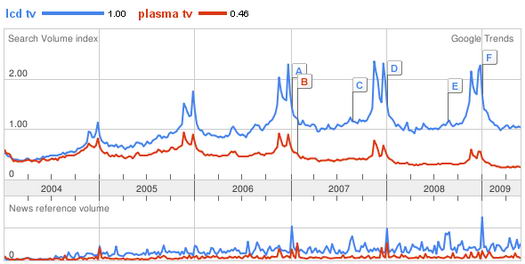
As you can clearly see, the number of Google searches for Plasma TV’s is on a clear decline whereas the number of Google searches for LCD TV’s is climbing. Based on the current trend, I predict it’s only a matter of time before Plasma TV’s are obsolete.
Another interesting thing to note about this graph is the spikes near the end of the year. This is inline with the increases in shopping for Black Friday and Xmas.
Facebook versus MySpace
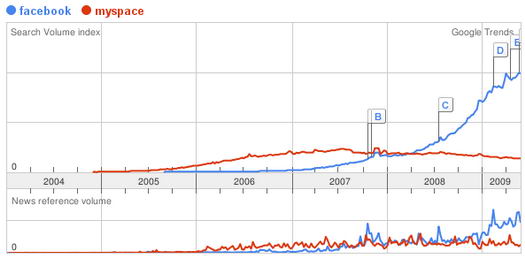
I remember how not very long ago everyone was wondering which would be bigger. Looking at the Google Trend it’s pretty clear who’s going to be bigger. FaceBook is continuing to grow while MySpace is declining. Although we can’t know for sure what the traffic numbers are, I’m willing to bet Facebook is ahead and gaining just like the Google Trends indicate.
When I wrote my ebook How to Generate Traffic to Your Website, I only had the Google Trends up to early 2008 (where they prettty much overlap and there’s not yet a clear winner), and even then I stated: “As you can see MySpace looks like it has already peaked, and may even be on the decline whereas Facebook has only recently peaked [in retrospect what looked like peak was only a temporary slowdown]. Please note however that these graphs don’t indicate real traffic but rather search query trends over time. If I was going to invest some time and/or money on one of these social networking sites, I would choose Facebook over MySpace based on these trend graphs.” A perfect example from a year and a half ago on how you can use Google Trends to better predict the future.
Netflix versus BlockBuster
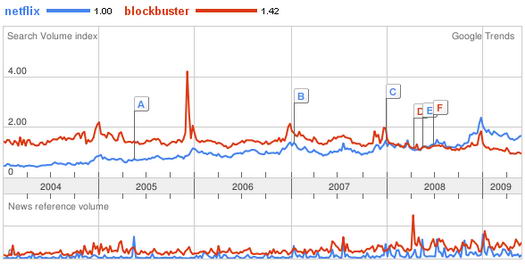
Based on the above Google Trends, it’s again pretty easy to conclude that Netflix is going to win over rental movies (I use Blockbuster since they’re the biggest brand name). Already Netflix has overtaken BlockBuster, and Netflix has an upward trend whereas BlockBuster has a downward trend. So unless things change, this lead should only widden.
Tivo versus PVR versus On-Demand
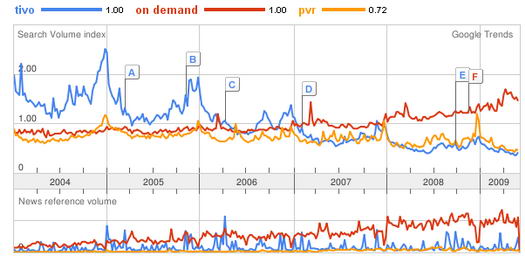
Based on these Google Trends, it appears that On Demand is growing faster than both Tivo and PVR’s. Tivo is definitely shrinking, and I expect it will eventually go away. PVR’s seem to be pretty static, which means they’ll probably stay with us for a long time. But On Demand is definitely a growing trend. If I was a betting man in the entertainment business, I’d put my money on On Demand as the way of the future.
Google Maps versus Mapquest
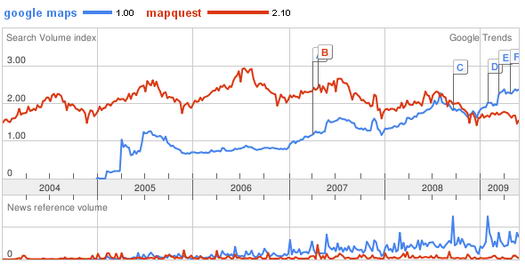
I remember how exciting Mapquest was when the internet was new. It was the first big website to offer you the ability to map direction from where you where to were you wanted to go. Since then things have significantly changed. Google Maps has come onto the scene. And have they ever. They’ve blasted right past Mapquest. I can’t imagine this trend reversing, especially not when you consider what all Google Maps has to offers over Mapquest.
Norton versus McAfee versus Nod32 versus Kaspersky

Years ago it used to really be a battle between Norton and McAfee. Today things have changed a lot. I can tell you from personal experience, I’ve used both McAfee and Norton and I dislike them both. They’re so performance hungry that they really hamper your machine. These days I use Nod32 and I have only good things to say about it. The performance of Nod32 is amazing. What a difference!
In any case, you can clearly see that the lead Norton had is now gone. Not only that, McAfee is also losing steam. What’s interesting though is that it looks like the old guard is going to be replaced. I picked Nod32 because I like it a lot, and Kaspersky because I’ve heard good things about it, but there are many others. Needless to say, these two are growing while the while Norton and McAfee are shrinking. I predict it’s only a matter of time. If it wasn’t for stores like Best Buy stocking Norton and McAfee on their shelves, that and corporations staying with what they’ve always bought in the past because change is hard, the numbers would be even more drastic. I predict it’s only a matter of time.
Network Solutions versus GoDaddy
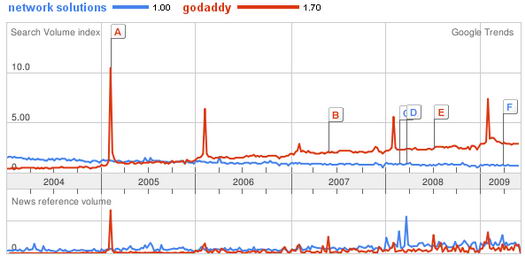
Back in the early days of the internet there were only 3 domain registrars, one of them being Network Solutions. Eventually this changed, and now we have more registrars than I can count. But what’s interesting here is that we can see that just because Network Solutions had an early lead, it doesn’t mean they will keep it. Remember they were one of only three registrars! What happened? They kept charging very high prices for domains hoping to bank on their brand recognition.
Along came GoDaddy with cheap domain registrations. Today we can clearly see that Network Solutions is going in a downward trend while GoDaddy is going upwards. It’s easy to see this lead growing with time.
SSD versus HDD
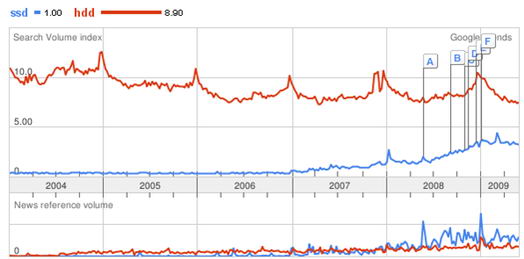
For those who aren’t as familiar with these abbreviations, SSD represents Solid States Drives and HDD represents Hard Disk Drive. HDD’s are currently the standard disks you find in computers. It’s most likely what you have in your computer. SSD’s are the new storage technology. They destroy HDD in terms of performance. They aren’t just a bit faster, they are multiple times faster. Not only that, they use a fraction of the energy, can take more physical abuse, have no moving parts, make no noise, and so on. Basically they trump HDD’s. The downside is that they’re still expensive, several times more than a standard HDD and they only come in smaller sizes. It’s more than enough space to run a normal computer, but I wouldn’t recommend storing larger media files on it just yet, it’s still too expensive.
In any case, you can see that HDD searches are going down while SSD searches are increasing. I predict it’s only a matter of time before SSD’s win out over HDD’s.
Conclusion
In many instances it’s possible to predict a clear winner by using only Google Trends. However you still need to use your brain, it’s not always correct. When I ran Blue Ray versus HD DVD, HD DVD was winning at the time, and it appeared it was going to win. I remember reading all kinds of articles and posts on how HD DVD was going to win. But then suddenly Sony made some deals and the majority of the studios made commitments to Sony’s Blue Ray technology. Within a month, it was all over. Blue Ray beat out HD DVD. However if it wasn’t for a direct intervention by Sony, I suspect things would be very different now. Having already gone through and lost the Beta versus VHS battle years ago, Sony wasn’t about to replicate it’s mistake one more time with Blue Ray versus HD DVD.
Overall though, you can, and should, definitely take advantage of leveraging Google Trends to predict the future. It’s the most powerful tool I know for predicting the future.
Permalink to this article Discussions (1)
Preventable Identity Theft

Identity Theft is a very prevalent issue in today’s world. It happens too often to be ignored. I’m sure you know at least one person who has been the victim of Identity Theft. And the sad thing is that in most cases it’s very preventable. Even sadder is that most people don’t realize that they might be the cause. Not as in being the victim’s themselves but as in innocently putting other people in harms way. Well intentioned people are doing things they believe are safe but are instead very dangerous.
Let me give you an example. I founded and run a software company called LandlordMax which sells real estate rental management software to property management companies, individual real estate investors, and so on. As part of this, the software allows you to store information on your tenants so that you can figure out what’s going on with your properties. For example, you can keep track of your tenant’s leases, payments, their address, invoices, receipts, employers, contacts in case they skip out on you, notes, basically a lot of information.
What’s scary is that we continually get requests for the software to store additional pieces of information that shouldn’t be stored on any desktop computer. Even on computers secured by computer security experts. For example did you know that Visa and MasterCard explicitly tell you NOT to store the full credit card numbers in your databases, that you can potentially be held liable for doing so. All you’re allowed to store is at most the last 4 digits. The next time you buy something at your local store with your credit card, look at your receipt. All you’ll see is the last 4 digits of your credit card, nothing more. This is not random, it’s a security measure to prevent credit card theft.
Knowing this, you’d be surprised by what confidential information we’ve been asked to store within the software on our users computers. We’ve been asked to store tenant’s credit card numbers, driver’s licenses, scanned images of driver’s licenses, passports, Social Security Numbers, and so on. Confidential information that should never be stored on any desktop computer.
The scary part is that a desktop computer is not that secure. Not only that, but these are sometimes desktop computers used in homes or businesses of people with little or no security expertise. With no IT (or security) professionals setting up these computers.
But even if only the most advanced computer users stored this type of information, it’s still not enough. These are computers used for everyday usage, not hardened and locked down computers. All it takes is for someone to surf online to one bad website with a browser that has a zero day exploit and it’s game over! In many cases it’s the action of the user that compromise the system, not the system itself. This is also why secured computers are never used for daily activities such as surfing the net. They are locked down so tight that they’re pretty much dedicated to one and only one function (such as a database server).
And even with these systems it’s still a very bad idea. But what’s scarier is that many of the people making these requests are already storing this type of information in plain old Microsoft Word and Excel documents on their laptops. Computer files that are completely unprotected. I also know some people are scanning things confidential documents and saving them as images on their computers, again completely unprotected. These are computers connected to the internet!
This problem isn’t just limited to computers either. How many physical filling cabinets do you think contain all kinds of identity information they shouldn’t? Have you ever rented an apartment or house where the landlord wanted to keep a copy of your drivers license and/or your credit card number?
It’s not that these people want to do harm, it’s that they don’t know any better. Whenever we’re asked about storing these types of information we always tell them we don’t, and then we proceed to very strongly advice against it explaining the issues and how they could potentially be help liable for damages. In most cases that’s the end of it, but unfortunately it’s not always.
What about the poor tenants themselves? How comfortable would you be knowing that your landlord (or the company managing the property you’re renting) has all your information on a desktop computer? Scary isn’t it?
And this is why we will NEVER offer the ability to store this type of information within our software. It’s just bad news on all levels. No good can come of it. This information should never ever be stored on a desktop computer (or in a filling cabinet). Never ever!
And this is why I wrote this post today. From now on we’re going to point people who make such feature requests to this post, and hopefully some of you will too. Let’s try to prevent this from happening. Please do go ahead and comment and share your stories, hopefully we can help people better understand the implications of storing this type of information on their computers. It’s not that they mean any harm, it’s that they don’t really understand the potential dangers. Let’s teach them and hopefully we can reduce identity theft together!
Permalink to this article Discussions (3)
Is it a Good Time to Buy Real Estate?

It depends. Don’t you absolutely hate that answer? But the reality is that it really does depends and any other answer is wrong.
It really does depend on the situation and circumstances. For example, it might be a good time to buy real estate in New York city while simultaneously being a bad time to buy in Los Angeles. And even then, and much more importantly, it might be a good or bad time for you personally to buy real estate (or any other revenue generating asset such as stocks, bonds, etc.)!
Let’s look at a simpler case study than real estate to get a better understanding. Let’s pretend you’re the owner of a movie rental store. Instead of real estate, you buy and rent DVD’s. Is it a good time to buy DVD’s? It depends. Firstly how much do the DVDs cost in terms of how much you can rent them for? In other words, will the DVDs make you money? And how long will it take you to start being profitable from buying and renting DVDs?
Before we go on, remember that although you can buy a DVD for say $40, that’s not necessarily your true cost. You also have to include the cost of employees, rent for your store, marketing, people bringing back the movie late, lost inventory, insurance, accountants, etc. However for the sake of this discussion let’s keep it simple, let’s assume the real cost is double the purchase price.
Taking an example, if our total cost to buy a DVD is $80, and we can rent the movie out at $5/day, then it will take 16 days to start making any profit. Not bad. But wait, it’s not that simple. Is the movie going to be rented 16 days in a row? That’s a probability, and you have to assume no. In real estate, we use a similar concept, the vacancy rate, which signifies the percentage of unoccupied units. For now we’re just going to assume the DVD is fully rented. And since most people rent a DVD one day and return it the next day (sometimes two), we’ll use 32 days as a safer assumption. At 32 days, it’s not looking too bad.
But we’re not done. What about late returns? Right now most video stores allow you to return a movie late (by over a week) with no late fee. This will unfortunately over complicated our example, so let’s just assume we can’t charge late fees. Therefore instead of 32 days, we’ll pad our estimate to 60 days, or 2 months. It’s simple and should be good enough.
Is it a good time to buy now? It still depends! Can you actually rent your DVD’s at $5/day in your local area? Are you in a poorer area where $5/day is considered a luxury? Maybe you can only charge $2/day. Or maybe you live in Beverly Hills and you can charge $20/day because you offer mocha lattes for each of your visitors as they peruse your store. The price you can charge for your revenue generating asset, in this case DVD movies, will greatly affect whether or not it’s a good time to buy. At $2/day, it will take you at least half a year of continued rentals to make any profit. Can you rent the DVD for half a year non-stop? Not likely. Most movies fade out of popularity within months, if not weeks, before other newer movies take their place. Hence at $2/day, it’s probably not a good time for you to buy. However if you can rent the DVD at $20/day, it will take you only 2 weeks to start making a profit instead of 2 months. A much better time to buy. Well maybe.
We still can’t know if it’s a good time to buy. Why? What about the specific asset, or in our case the specific movie. If the movie we’re buying is the latest multi-gazillion blockbuster, then it’s probably looking good. But what if it’s the latest Hollywood straight to DVD flop that absolutely no one wants to see? Probably not. We might never even be able to rent it once! It could be a complete lost of time and money. Again, it depends.
But let’s assume it’s the best movie ever made in all of history, and we can rent it out at $10/days and it will only cost us $50 total to buy. Is it still a good time? Again, it depends. What if all you personally have left in your bank account is $10 (and maybe even that $10 is allocated to other pre-existing payments). Then you can’t afford it.
Can we get a loan for the $50? Maybe, but can we afford the payments? Can we carry the loan? We’re assuming it’s the best of the best movies, but what if it’s not? Poseidon anyone? Ignoring that we might make enough money to cover our loan payments on the principal, what about the interest? Can we get an affordable loan at an interest rate that will give us a comfortable return (I say comfortable return because we all have different thresholds for risk)? In other words, even if it’s the greatest deal, can we afford it. Does our personal financial situation allow us to capitalize on it?
So the next time someone asks you: “is it a good time to buy?”, I hope you’ll say it depends because it really does depend! It depends on the specific situation, circumstances, and the assets you want to buy.
PS: I didn’t include the long tail in this example, that is movies that have been out for years and still continue to get rented often. These are very profitable. And the same is true for real estate properties, stocks, etc. Generally the longer you hold onto them, the more money you’ll make. Instead I tried to focus on whether or not you’d be able to get to that longer tail, that if you can at least start making a profit on the assert within a reasonable amount of time.
Permalink to this article Discussions (1)
I'm Immortal
I’m Immortal and I can prove it using valid and correct statistics! It’s pretty simple actually. To prove my immortality, I’m going to use the data from my life.
Here’s how the proof goes. Since the day I was born I’ve never had a day in which I died. Being my age, that’s just under 13,000 days. A fairly decent sample size (I think that with 13,000 flips of a coin we could determine the odds of getting heads or tails). But maybe for those of you who aren’t yet confident, let’s increase the sample size. In all 18,408,206 minutes I’ve lived (give or take a bunch) I’ve never died. Not once!
So based on my past data, the odds of me ever dying are less than 0.00…1%. In other words I’m virtually immortal! How cool is that?
However as we all know this logic is flawed, I will one day die. I’m no more immortal than anyone else. However there is no error in my logic. My sample size is large, quite large (over 18 million data samples with not one instance of me dying). Definitely enough to get a very high level of confidence, statistically speaking that is.
The flaw is that I can’t prove something positively, I can only ever really disprove something. In this case, just because I’ve lived over 18 million minutes without dying, doesn’t mean I’ll live another minute. In other words I can only prove that my theory is false, I can never be sure that my theory is true. I can be more confident, but I can never be sure.
And this is exactly what’s gotten the world in such financial trouble. Statements like “The market never goes down x% in a given month.” or “The US government can’t collapse.”. Our sample size just isn’t big enough. We can never prove this to be true, we can only disprove it. Just like we can’t disprove/prove we’re immortal until we die.
Therefore you have to be careful of what’s being said out there. Remember that rare events do happen, and they happen much more frequently than we think. Several are happening right now. The Feds bringing the interest rates to near 0%. The real estate market collapsing on itself. Deflation looking like it might be a real possibility. The government needing to bailout the corporate world on a never before seen scale. It’s all happening, yet it’s not possible. Another once in a lifetime event is happening again and again and again…
However there is good news. Learning and knowing to appreciate rare events can be an incredible benefit. You should plan for them, because although rare they do happen very frequently (that last sentence sure sounds like something Yogi Berra would say).
If you’re interested in learning more about this, I strongly recommend the books Fooled by Randomness and The Black Swan (the inspiration for this post). Both are amazing books that will really open your mind. And they’re not just about finance, they can be applied to anything in life.
Thank you also Jian for recommending these books.
Permalink to this article Discussions (5)
Oops…
As I’ve said time and time again, it’s good to air out all your successes AND failures. And today I’ll be airing out another one of my failures, well more like a mistake. In any case, it’s something that should have been done better.
Yesterday I published the post An Easy Shortcut to Successfully Budget Your Finances. On it I stated a “basic rule” to significantly simplify your budgeting, all the while leaving you with a surplus of money if done right. The rule is sound, but for whatever reason there was a mistake in the translation from my head to my written words (my blog post). It wasn’t a late night post when I was really tired type of mistake, it was written in the middle of the day. It was a classic mistake of my brain saying one thing while my words said another slightly different thing.
Even after re-reading it a few times, it was still perfectly clear in my head. I knew what I meant to say and I had said it. It actually wasn’t until Freewheeler (unfortunately the comment was anonymous) commented on the post that I realized the rules I had written down weren’t exactly what I meant to say. They were close, and I can easily see where I went wrong.
What I wrote was:
AND
For every Expense increase the first digit by 1
Where it should have been:
and reduce all other digits to 0
AND
For every Expense increase the first digit by 1
and reduce all the other digits to 0.
The good news is that the rules I stated would have been even more in your favor, giving you an even bigger surplus. But it would also have made budgeting much harder.
The biggest mistake was on the income, the first digit shouldn’t have been altered, but it made sense in my head. What I meant to say was round down, but what I instead said was round down and then some.
The good news is that my examples showed what I meant to say. The examples are correct, it’s just that the rules weren’t as accurate as they should have been. Good thing they favored the budgeter.
All that to say I apologize for the mistake in yesterday’s post. And it’s been corrected.
Permalink to this article Discussions (2)
An Easy Shortcut to Successfully Budget Your Finances
** Update: The rule below has been updated to reflect a small correction.
Most of us want to budget, we’re just not very good at it. To properly budget means that we need to keep track of all our expenses and all of our income. For most people the income part is simple, it’s the paychecks you get from your job. It’s the expense part that’s difficult because it requires detailed and regular record keeping to be accurate.
Have you ever tried to calculate all your expenses for a month? Generally this involves buying software like Quicken and entering in all your information (as well as downloading all your banking information into the software). Then hopefully at the end of the month the discrepancy between what you entered and what you spent isn’t too big. And have no doubt, there’s always a discrepancy, you always spend more than your budget says somehow. The budget (or software) must obviously be wrong then!
Or could it be that there are lots of cash expenses that just don’t get tracked. Those daily cups of coffee that ad up to $40 a month. Or what about that lunch the other day that was $16? Oh and that popcorn and drink at the theatre last week that cost over $300 after coupons? It all adds up.
So unless your extremely meticulous, which most of us aren’t, your budget will always be underfunded. Or so you might think. But today I’m going to show you a very simple way to minimize this discrepancy, and possibly come out ahead! And best of all, it’s much much simpler and takes almost no effort. The only downside is that it’s not as accurate so you really need to do it right. If you don’t, you can come out behind.
It all comes down to one very basic rule that’s used in software estimations. It’s the rule of padding. However unlike software estimations, we won’t pad as aggressively. The rule is:
and reduce all other digits to 0
AND
For every Expense increase the first digit by 1
and reduce all the other digits to 0.
* Anything that’s under $10 becomes $10.
Very simple. In other words you downplay how much income you make and you over-estimate how much you spend. This gives you room for error. It also allows you wiggle room for un-budgeted expenses such as going to the coffee shop, the ugly gnome lawn ornament you just had to have.
Let’s look at an example. If you make $1230/month, then you only count it as $1000 revenue a month. If you make $5498/month, then you only count it as $5000. If you make $12,942/month, then you only count it as $10,000. Already we’ve reduced our income by a good amount. That’s already a good padding.
In terms of expenses, an $8 coffee at Starbucks now becomes a $10 coffee. That $1.25 chocolate bar now becomes a $10 chocolate bar. Your $1200/month rent now becomes $2000/month rent. If it’s $825/month, then it now becomes $900. Notice that only the first digit changed in the last two examples. Remember, only the first digit is applied. This is to balance things out and keep everything in scale. If you’re rent is under $1000 then you’re probably dealing with amounts on the scale of hundred of dollars. If it’s over $1000, then you’re probably dealing on a slightly larger scale, in the thousands of dollars. By only looking at the first digit, it allows the padding to be on the right scale for you. To keep going, your car payment of $325/month becomes $400/month. The $175.54 grocery bill becomes a $200 grocery bill. And on it goes.
As you can see, by underestimating how much money you make and overestimating how much money you spend, you give yourself some room to breathe within your budget. You don’t need to be as accurate, you just need to correctly round your numbers. In other words, you’ve just given yourself a margin for error. And as an added bonus, these rounded numbers are also much easier to add up and calculate in your head.
By using just this simple principle of padding I was able to come out ahead financially for years. Every month I had some surplus money. Even today I still actively use this principle on a daily basis! However the main difference now is that I own and run my company (LandlordMax) which has forced me to calculated the detailed numbers at the end of each month. I need this accuracy to report my expenses and income to the government for taxes. When I was an employee, all I needed was an accurate number for my income (taxes), no one ever cared how much I spent. It just didn’t matter. With a company you need to know because you can write off your expenses on your taxes. Otherwise I still use the estimation method for my personal finances.
There you have it. The simplest and easiest shortcut to successfully budget your finances. For every Income leave the first digit and reduce all other digits to 0 AND For every Expense increase the first digit by 1 and reduce all the other digits to 0. And any amounts under $10 becomes $10.
Permalink to this article Discussions (4)
| NEXT PAGE » |


